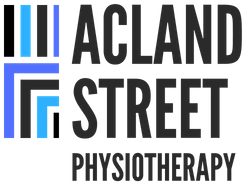|
In the quest for maintaining cognitive health as we age, the intertwining paths of physical strength and mental acuity offer an intriguing and promising avenue. Emerging research is shedding light on a powerful tool that goes beyond the conventional: strength training. Yes, the very practice often associated with muscle building and physical endurance also harbours profound benefits for our cognitive function. Here, we delve into the compelling evidence that underscores the mental enhancements brought forth by resistance training, particularly among older adults.
A Strong Body Houses a Sharp Mind A groundbreaking study by Matheus U Chupel and colleagues (2017) unveils that strength training diminishes inflammation while boosting cognition and physical fitness in older women with cognitive impairment. This research is pivotal in illustrating how resistance exercise fosters an anti-inflammatory balance, simultaneously uplifting physical performance and the cognitive profile. The implication? Engaging in strength training can be a strategic ally in combating cognitive decline, offering a beacon of hope for enhancing life quality in our golden years. The BDNF Connection: A Leap in Cognitive Health Diving deeper into the physiological underpinnings, a study by Emy S. Pereira et al. (2018) highlights the acute surge in Brain-Derived Neurotrophic Factor (BDNF) following a session of an extreme conditioning program. BDNF is no ordinary protein; it's central to brain health, implicated in learning, memory, and higher-order thinking. The study's findings suggest that not only does physical exercise stimulate this critical brain protein, but specific types of strength training can significantly elevate its levels, potentially unlocking immediate cognitive enhancements. Immediate and Lasting Cognitive Enhancements A systematic review by Jan Wilke et al. (2019) provides a broader perspective, affirming the immediate positive effects of resistance exercise on global cognition in healthy adults. This suggests that the benefits of lifting weights extend far beyond the physical realm, enhancing mental processes that are crucial for daily functioning and overall well-being. Strength Gains as Cognitive Gains Further substantiating the connection between physical and cognitive strength, a study led by Yorgi Mavros (2017) explores how strength gains from resistance training mediate improvements in cognitive function among older adults with mild cognitive impairment. This research underscores the significant role of muscle strength in enhancing cognitive function, advocating for strength training as a potent non-pharmacological intervention to fend off cognitive decline. Practical Insights for a Sharper Tomorrow Complementing these findings, André de Camargo Smolarek and colleagues (2016) observe that regular resistance exercises lead to noteworthy improvements in cognitive capacities of elderly women, emphasising enhanced life quality through strength training. Additionally, a systematic review by Zhihui Li et al. (2018) corroborates the efficacy of resistance training in bolstering executive cognitive abilities and global cognitive function, further advocating for its inclusion in the elderly's routine for a sharper mind. Starting Strength Training: Tips for Beginners Embracing strength training as a beginner might seem daunting, but it's a journey well worth embarking on for both your physical and cognitive health. Here are some tips to get you started:
Embracing Strength Training: A Path to Cognitive Resilience The evidence is compelling: integrating strength training into our exercise regimen can be a powerful strategy to preserve and enhance cognitive function, especially as we age. For physiotherapy practitioners and enthusiasts alike, these findings illuminate the profound impact of physical strength on mental health, advocating for a holistic approach to wellness that marries the vigor of the body with the vitality of the mind. As we continue to explore and understand the myriad ways in which exercise influences our cognitive landscape, it's clear that strength training holds a special place in the pantheon of tools at our disposal for combating cognitive decline and fostering a resilient, sharp mind throughout the lifespan. Incorporating strength training into our lives is more than a commitment to physical health; it's an investment in the longevity and vitality of our cognitive essence. For those embarking on this journey, the promise of a sharper, more vibrant mind awaits. References Used:
0 Comments
|
Author
Archives
May 2024
|
Copyright Acland Street Physiotherapy © 2024

 RSS Feed
RSS Feed